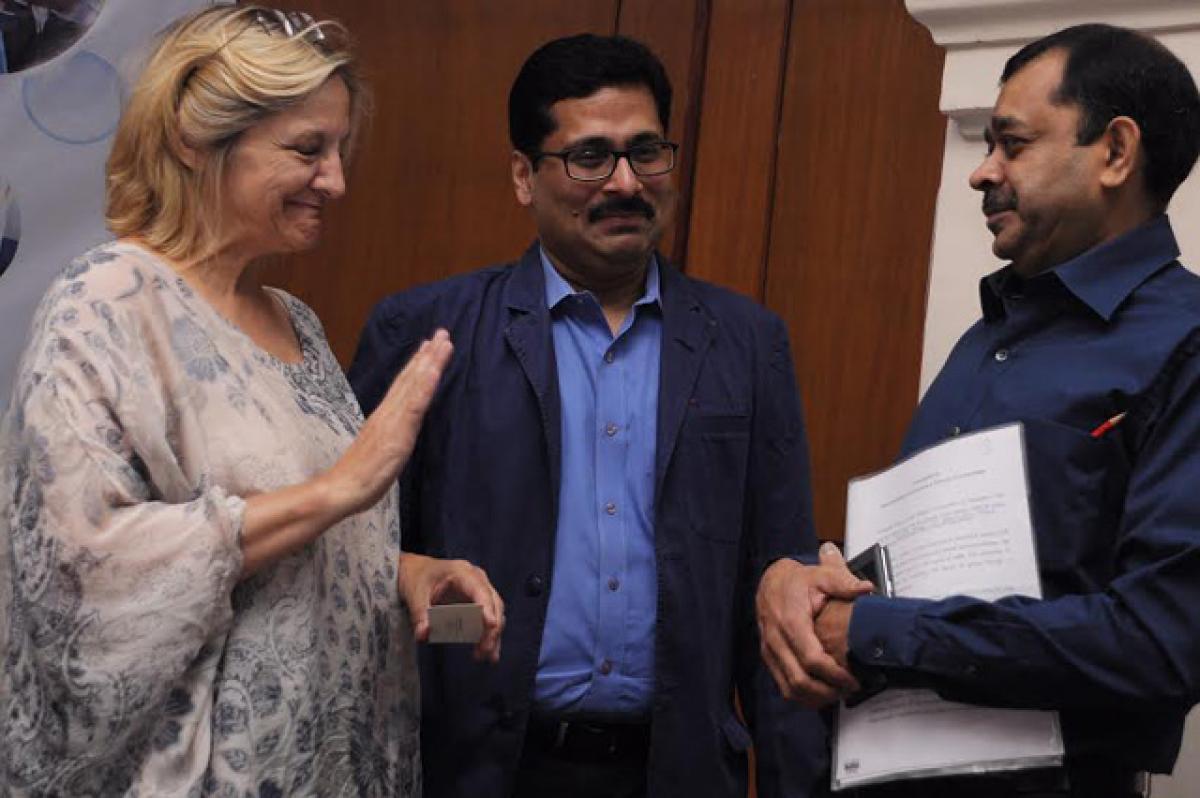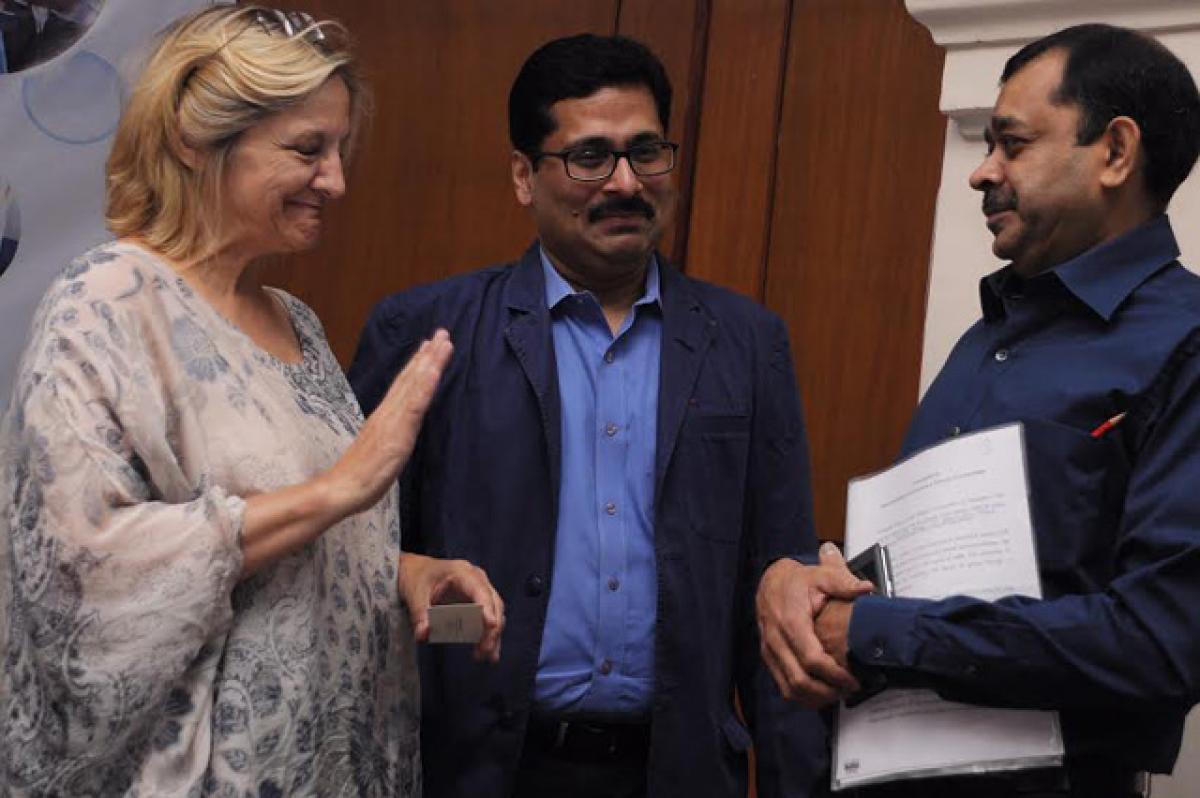UNICEF call to corporates to develop schools

UNICEF call to corporates to develop schools. Sue Coates, Chief, WASH section, UNICEF India, has called upon the corporates to take initiatives collectively to ensure Water, Sanitation and Hygiene (WASH) in schools so that all children would survive, thrive and meet their potential.
Hyderabad: Sue Coates, Chief, WASH section, UNICEF India, has called upon the corporates to take initiatives collectively to ensure Water, Sanitation and Hygiene (WASH) in schools so that all children would survive, thrive and meet their potential.

"It is the collective duty to ensure WASH in all schools," Sue Coates said while addressing a 'Consultation on WASH in schools for Corporates' jointly organised by the Administrative Staff College of India (ASCI) and UNICEF at Bella Vista in Hyderabad on Thursday.
She underlined the need of forging partnerships to achieve 'resilient children' in the country. She observed that India has the highest negative indicators to develop resilient children and cited annual neonatal deaths at 7,48,000, stunted children at 43 million, open defecators at 564 million and child marriages were 40 percent of the world. Sue Coates said that though ‘Right to Education’ was celebrated in the country, still 6 million children were out of schools and 36 percent girls dropped out from elementary education.
The ASCI Director General Ravi Kant felt that stakeholder-consultation is the key for the success of any initiative in dealing with WASH. He said, "For assets like toilets, techno-economic-cultural sustainability is very important and innovations in government schemes is desired." The corporates have the advantage of thinking out-of-the-box, he added. He asked the corporates to connect with NGOs and local persons to ensure success in their initiatives.
Expressing concern over the poor maintenance of toilets in many schools, Program Director Prof V Srinivas Chary said, "Previous experiences clearly suggest that over a period of three to six months after the construction, the assets will become a liability. More sustained interventions are needed for the meaningful spending of corporate funds."
Underlining the need of closing the sanitation loop in schools, Prof Chary said, “Child-friendly constructions, group hand wash facility, efficient operation and maintenance, behavioural change and capacity-building at different levels are the five key things to take up on urgent basis.”
As corporates have been increasingly recognised as advocates and partners in the national mission (Swachh Vidyalaya Campaign, as part of the Swachh Bharat Mission) to improve health and education in schools through WASH, ASCI-UNICEF jointly organised the consultation, which was attended by more than 75 delegates across the country.
















